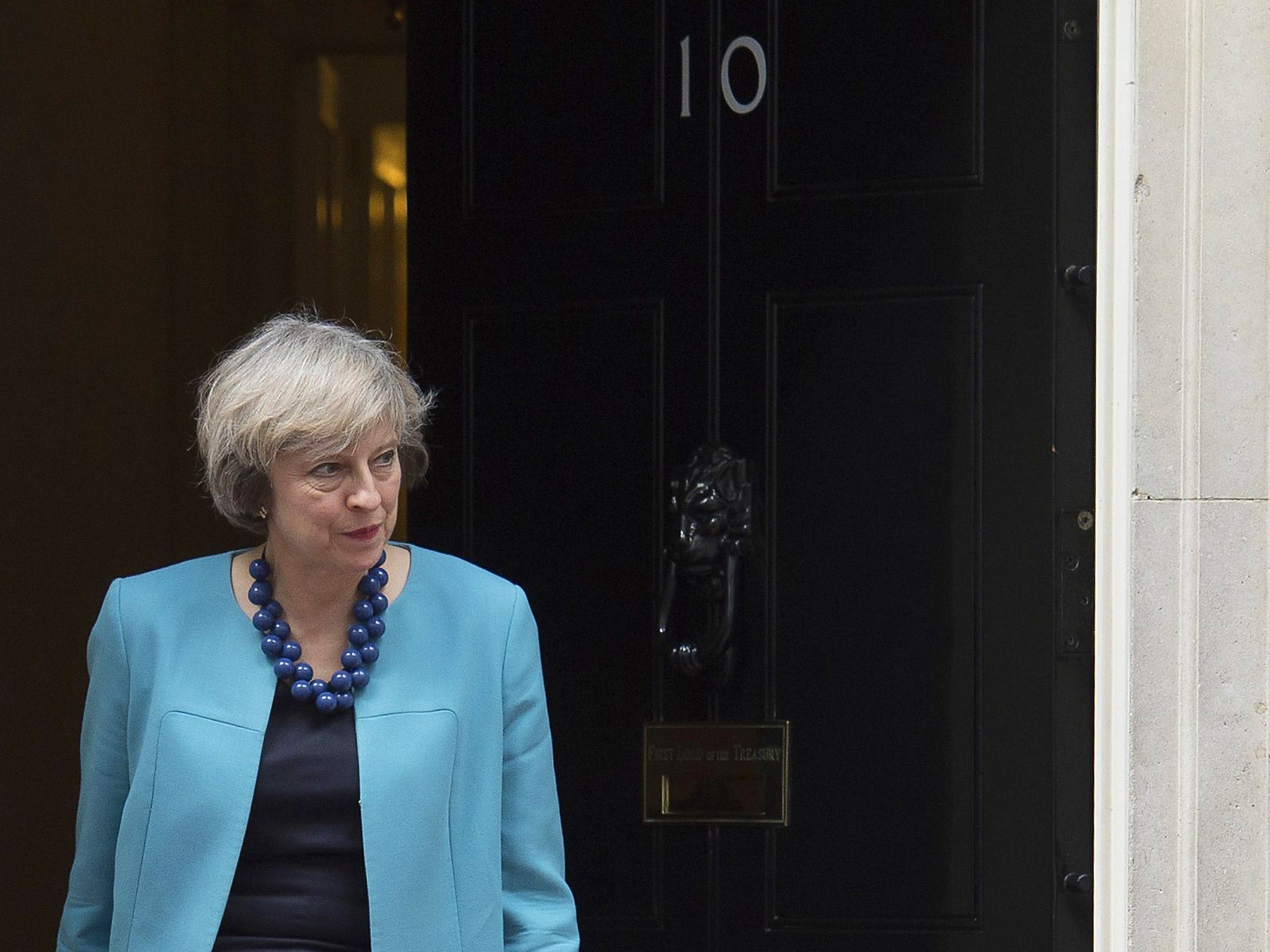Democratic oversight of Brexit is not an attempt to frustrate the will of the British people, Theresa May
Those who are opposed to a hard Brexit need to make sure that they are not painted into the corner of appearing to stand against the referendum result

Your support helps us to tell the story
From reproductive rights to climate change to Big Tech, The Independent is on the ground when the story is developing. Whether it's investigating the financials of Elon Musk's pro-Trump PAC or producing our latest documentary, 'The A Word', which shines a light on the American women fighting for reproductive rights, we know how important it is to parse out the facts from the messaging.
At such a critical moment in US history, we need reporters on the ground. Your donation allows us to keep sending journalists to speak to both sides of the story.
The Independent is trusted by Americans across the entire political spectrum. And unlike many other quality news outlets, we choose not to lock Americans out of our reporting and analysis with paywalls. We believe quality journalism should be available to everyone, paid for by those who can afford it.
Your support makes all the difference.We know Theresa May’s game, and we are not falling for it. Her cunning plan, as Jeremy Corbyn might have characterised it, is to pretend that anyone who seeks any kind of democratic oversight of her Brexit negotiation is trying to “frustrate the will of the British people”.
She tried to use that argument at Prime Minister’s Questions this week against Mr Corbyn. It was rather ineffective because the Labour leader’s ambivalence about the European Union makes it hard to suggest that his heart is really in trying to block our exit.
However, it could be effective against the Labour Party as a whole, and against shadow Brexit Secretary Keir Starmer and Brexit select committee chair Hilary Benn, the leaders of the opposition to a hard exit deal – that is, a deal that puts cutting immigration above our national prosperity.
Those who are opposed to that kind of Brexit need to make sure that they are not painted into the corner of appearing to stand against the referendum result. The idea that giving Parliament a say over the terms of our departure from the EU is an attempt to block our departure is a clever rhetorical device, but Ms May must not be allowed to get away with it.
As we report today, a majority of the British people want to guarantee the right of EU nationals already in the UK to stay here. They disagree with Ms May, who says she hopes that can happen, but that it depends on the attitude of other EU countries towards our citizens. At least she avoids the language of Liam Fox, her International Trade Secretary, who spoke of the rights of EU nationals here as one of the UK’s “main cards” in the Brexit negotiations. But our poll finds that 58 per cent of the British people think that we should guarantee the rights of EU citizens already here, even while other EU countries have not made a reciprocal promise.
This is precisely the kind of question on which Parliament should be allowed to influence the Government’s negotiating stance. And, as we also report today, that is what Ms May herself once thought. In 2007, she wrote that parliamentary sovereignty demanded “a system that gives Parliament real powers over ministers”. As she was writing about giving MPs enough time to scrutinise European legislation, the principle must apply to her European negotiations too.
Obviously in the end, Parliament will face what Ms May calls a binary choice between the Brexit deal negotiated by her Government or no deal at all. But there is an infinite range between a deal that protects the UK interest in the single market as much as possible and one that pulls down the shutters on trade and the movement of people. The British people, through their parliamentary representatives, should have as much of a say over that choice as they can.
It was unhelpful, therefore, for Tony Blair to engage in the debate this week. Much of what he said about keeping options open was sensible, but he also refused to rule out the possibility of a second referendum if there were sufficient evidence that the British people were horrified by the reality of the Brexit deal. That too is a reasonable view, but any talk of a second referendum plays into Ms May’s hands: it looks as if bad losers are trying to overturn the result of the first vote and it spawns thousands of sarcastic questions on social media about whether we should have the “best of three”.
The Independent accepts the result of the referendum, but that does not mean that we accept Ms May’s absolute right to decide the terms on which we leave the EU.
Join our commenting forum
Join thought-provoking conversations, follow other Independent readers and see their replies
Comments